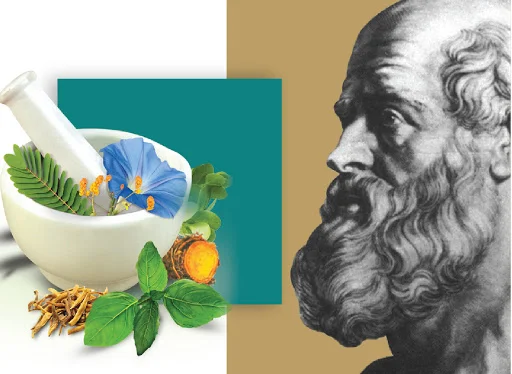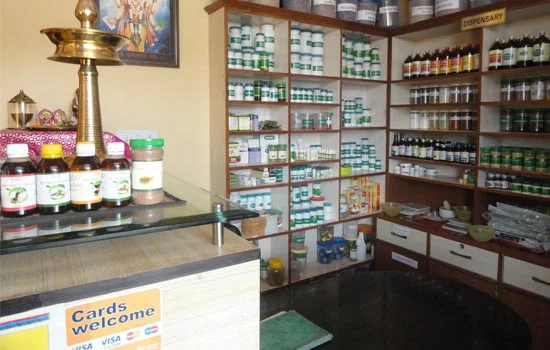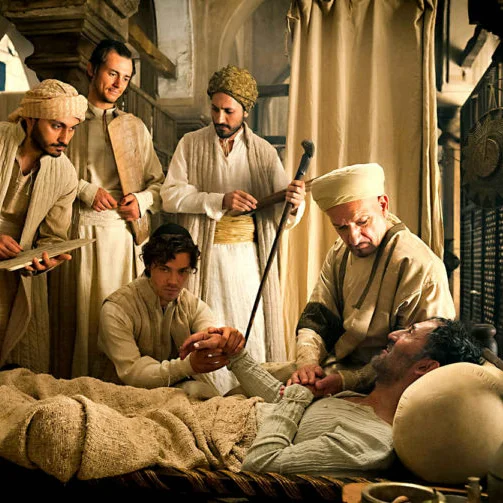Unani
It is the science in which we learn various states of body in health and when not in health and the means by which health is likely to be lost and when lost, is likely to be restored


Unani-tibb or Unani Medicine also spelled Yunani Medicine (Arabic, Hindustani, Pashto and Persian) is a form of traditional medicine practiced in middle-east & south-Asian countries. It refers to a tradition of Graeco-Arabic medicine, which is based on the teachings of Greek physician Hippocrates and Roman physician Galen, and developed into an elaborate medical system in middle age era by Arabian and Persian physicians, such as Rhazes (al-Razi), Avicenna (Ibn Sena), Al-Zahrawi, and Ibn Nafis. Unani medicine first arrived in India around 12th or 13th century with establishment of Delhi Sultanate (1206–1527) and Islamic rule over North India and subsequently flourished under Mughal Empire. An outstanding physician and scholar of Unani Medicine, Hakim Ajmal Khan (1868 – 1927) championed the cause of the Unani system in India.The Unani System of Medicine is included in the Central Council of Indian Medicine as per IMCC, Act 1970.(Source: https://www.ccimindia.org/)
Ibn-e- Sina popularly known as Avicenna, one of the greatest scholars of Unani Tibb (medicine), has defined Unani Medicine as “It is the science in which we learn various states of body in health and when not in health and the means by which health is likely to be lost and when lost, is likely to be restored”.
It is a comprehensive medical system, which meticulously deals with the various states of health and disease. It provides promotive, preventive, curative and rehabilitative healthcare. The fundamentals, diagnosis and treatment modalities of the system are based on scientific principles and holistic concepts of health and healing. Accordingly it considers individual in relation to his environment and stresses on health of body, mind and soul. Temperament (Mizaj) of a patient is given great importance in diagnosis and treatment of diseases. Temperament is also taken into consideration for identifying the most suitable diet and lifestyle for promoting the health of a particular individual. In spite of continuous neglect, this healing art is not only surviving but also complimenting other systems of medicine.
The Unani System of Medicine offers treatment of diseases related to all the systems and organs of the human body. The treatments for chronic ailments and diseases of skin, liver, musculo-skeletal and reproductive systems, immunological and lifestyle disorders have been found to be highly effective and acceptable. The use of elatives, exhilarants, aphrodisiacs, organ-specific tonics and immunomodulatory drugs, temperament specific drugs, correctives for adverse effects, coctives and purgatives etc. are unique features of Unani System of Medicine. Cosmoceutics, Nutraceutics, Aromatics and corresponding therapies are important parts of treatment in Unani System of Medicine.


Unani physicians give prime importance to diet and the state of digestion in a person, in both health and disease. Specific dietary regimens are recommended while treating patients according to their temperament. Proper diets are assumed to produce good humours (Akhlā\Ṣāliḥa) while improper ones produce bad humours (Akhlā\ Radiyya). Thus, the humoral imbalance can be corrected by medication coupled with proper diet. The physician prescribes the drugs according to the temperament of patient, causative humour, faculty of organ involved and severity of the disease. These drugs are classified as per the specific temperament (Mizāj) and are graded in the first, second, third and fourth degree according to their potency.
It is presently practiced in India, Bangladesh, Pakistan, Sri lanka, Nepal, China, Iran, Iraq, Malaysia, Indonesia, Central Asian and Middle Eastern Countries. In India the system has been developed scientifically, nurtured and systematically integrated into healthcare delivery system over the years.Unani system of medicine also benefited from the native medical systems in vogue at the time in various parts of Central Asia. That is why this system is known, in different parts of the world, with different names such as Greco-Arab Medicine, Ionian Medicine, Arab Medicine, Islamic Medicine, Traditional Medicine, Oriental Medicine etc.
